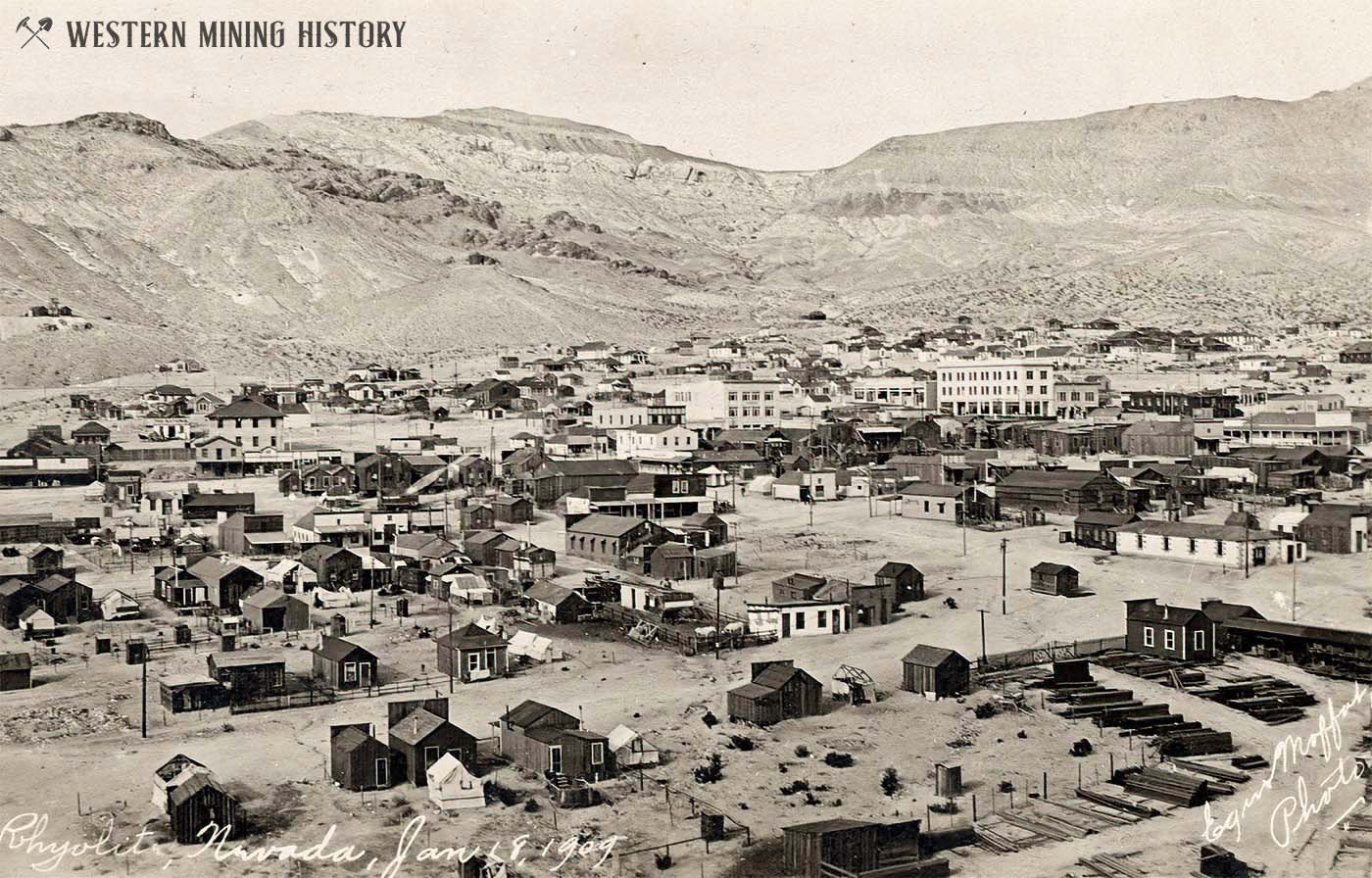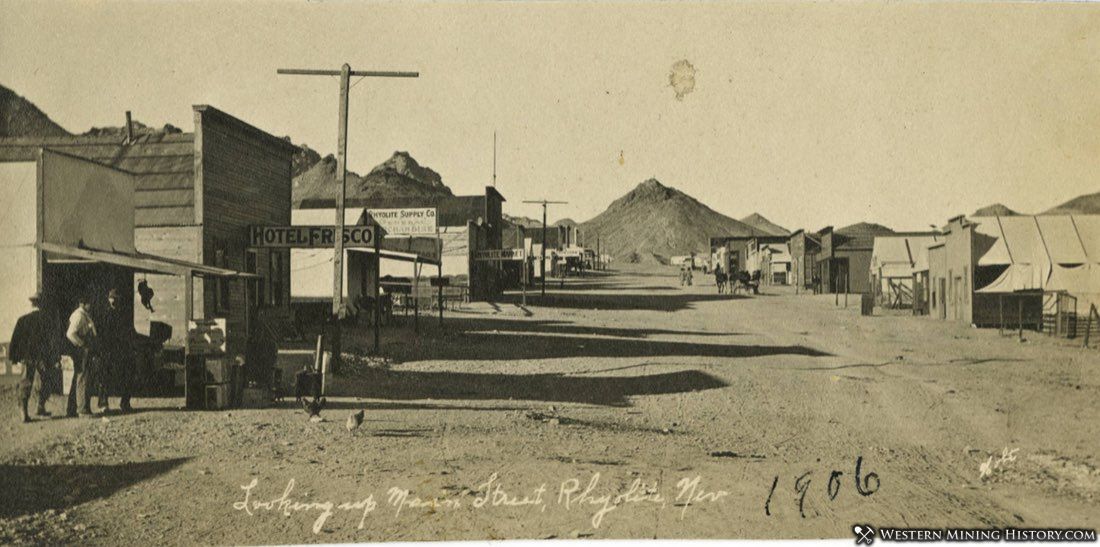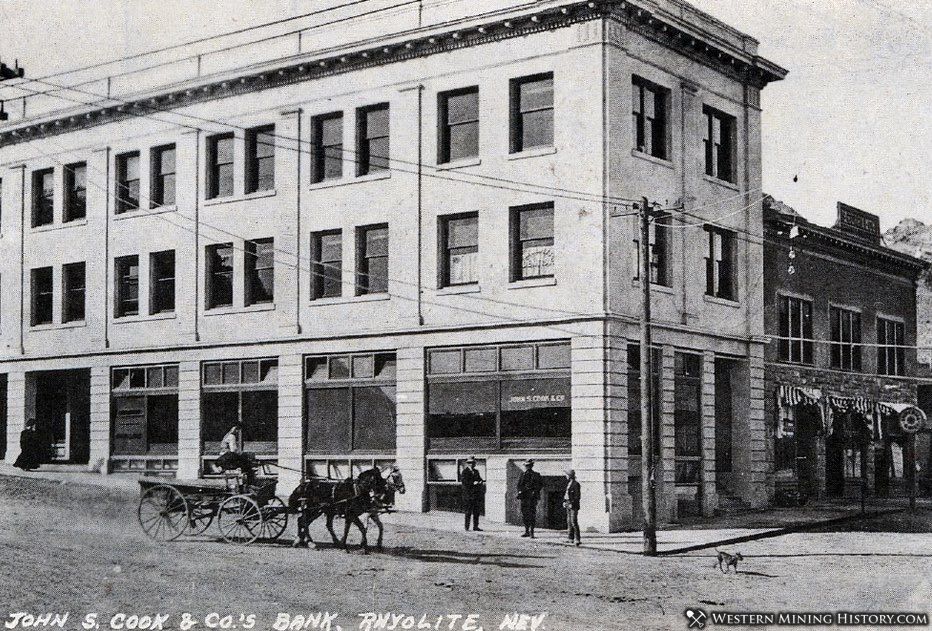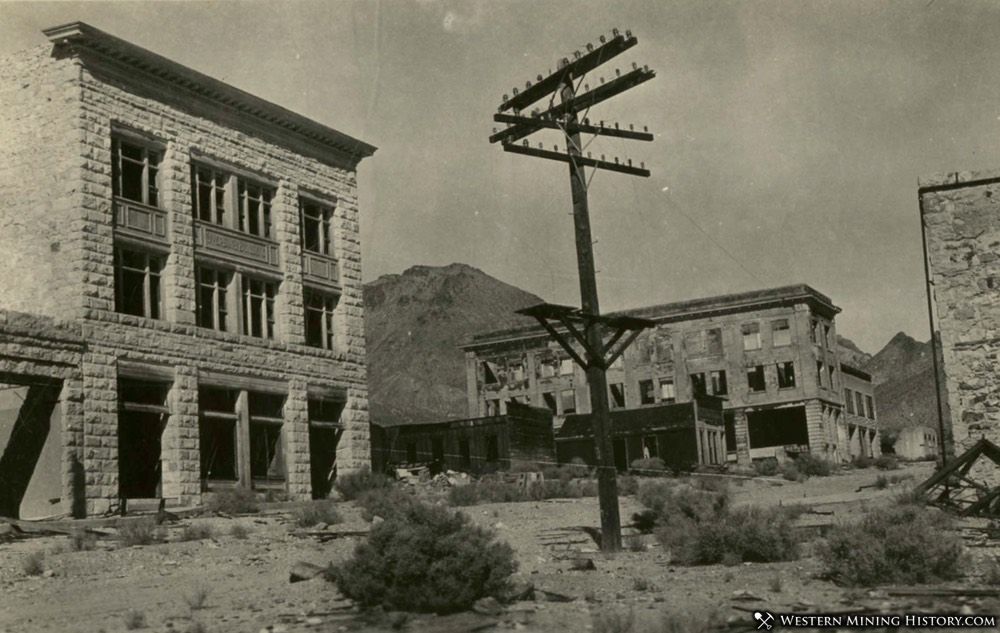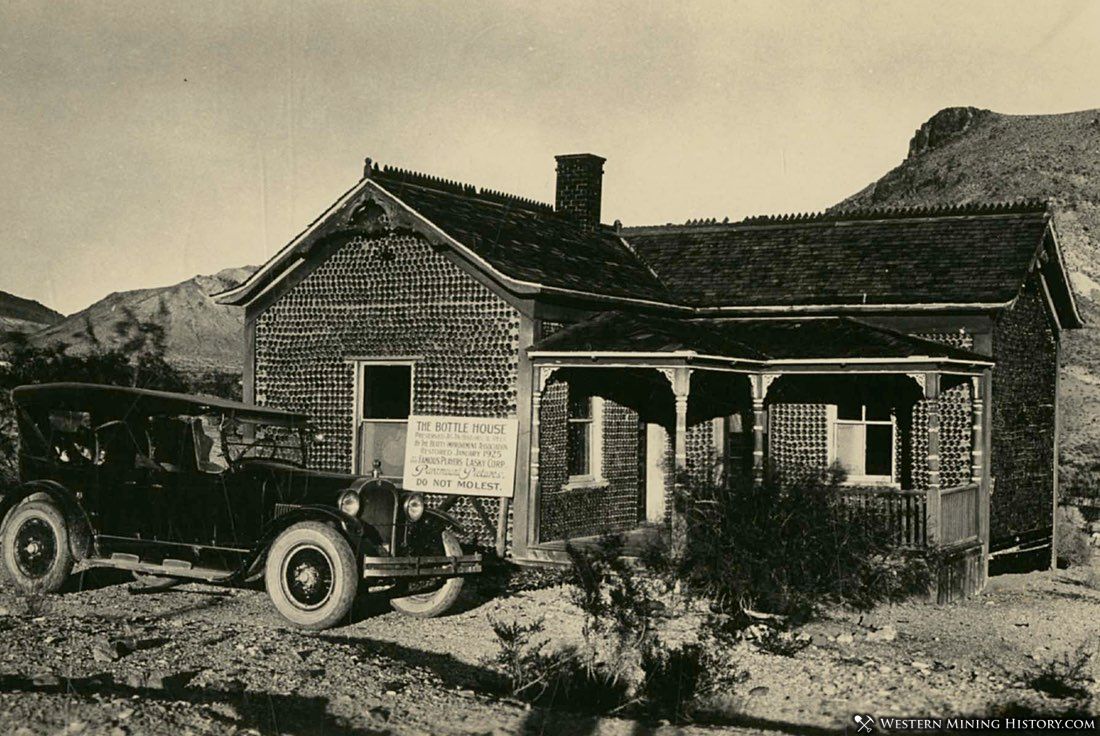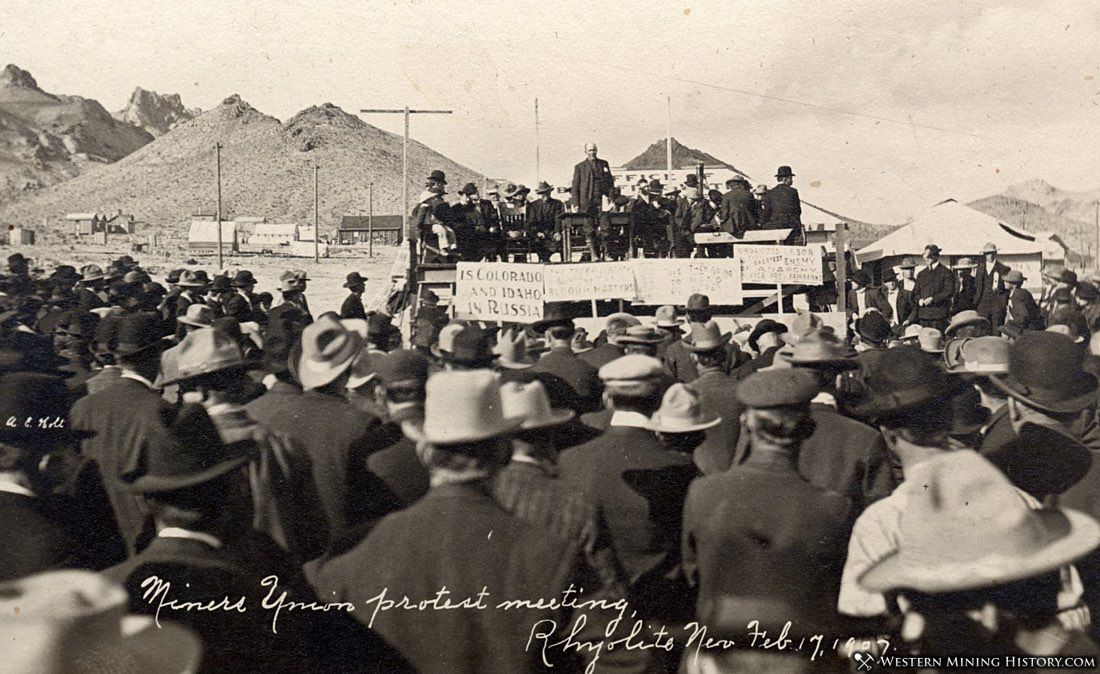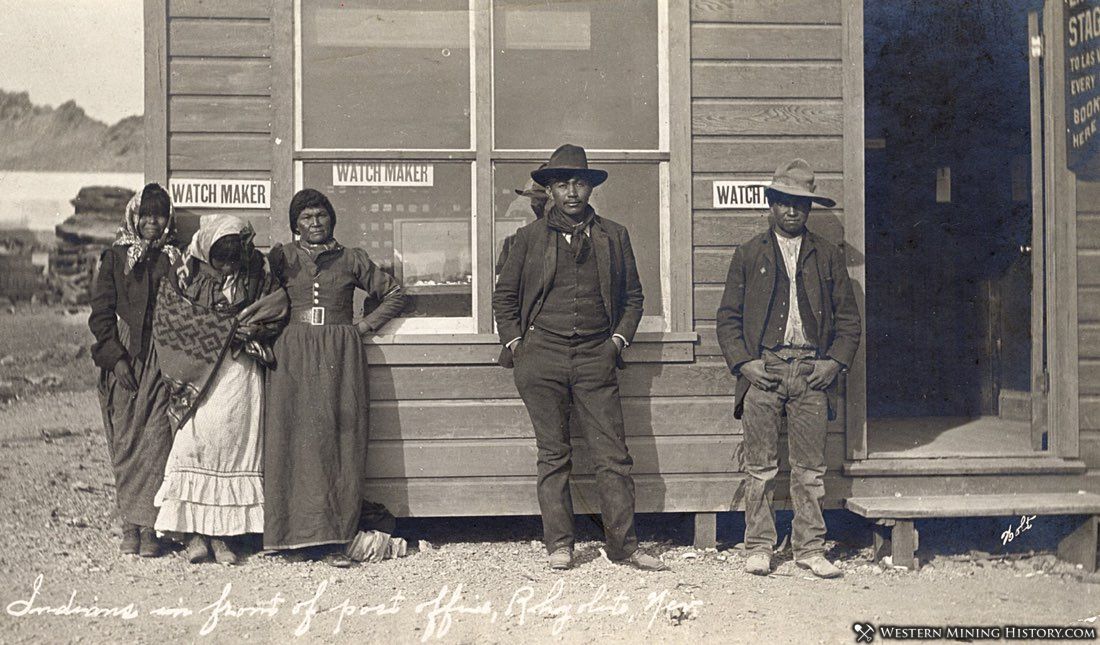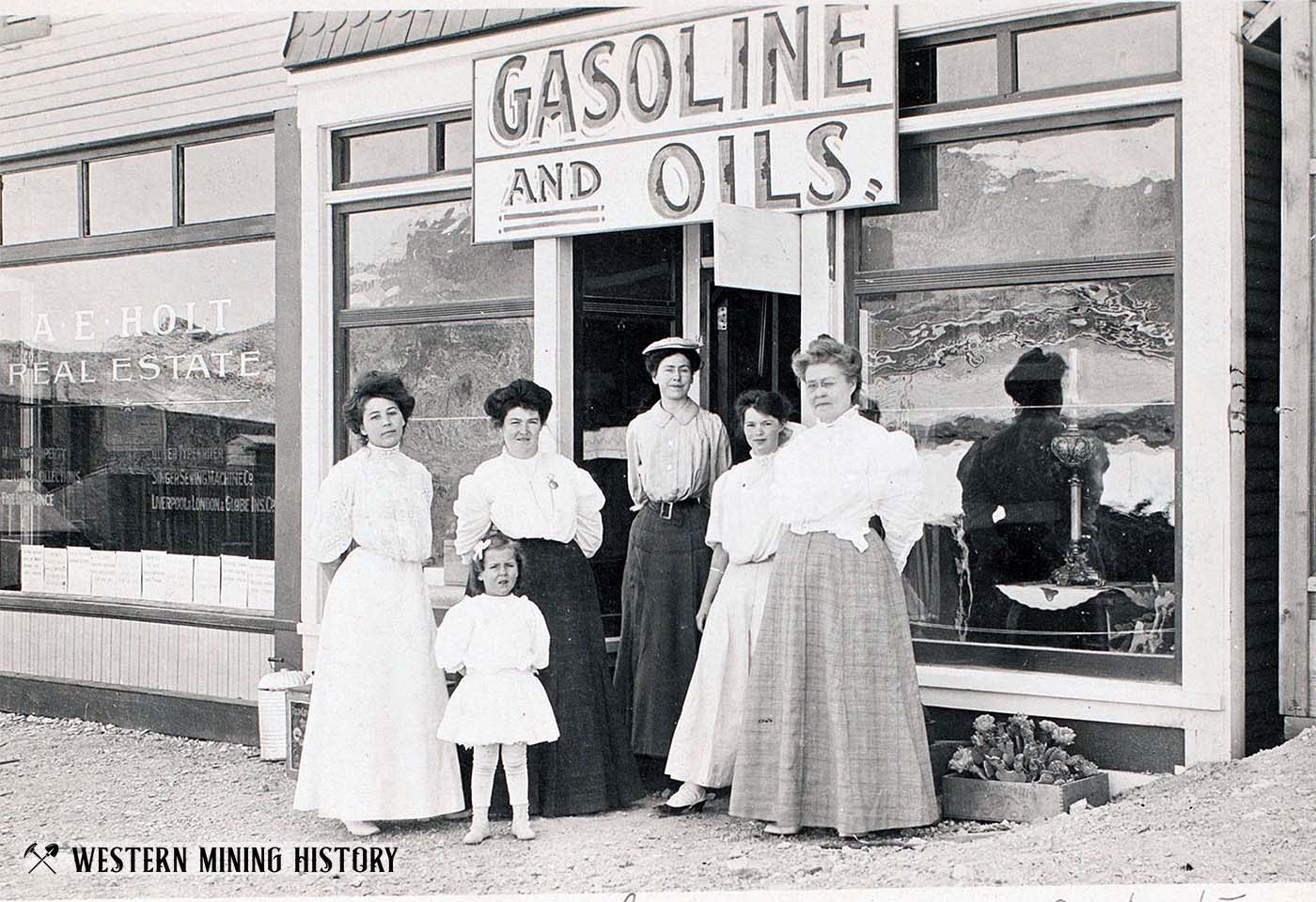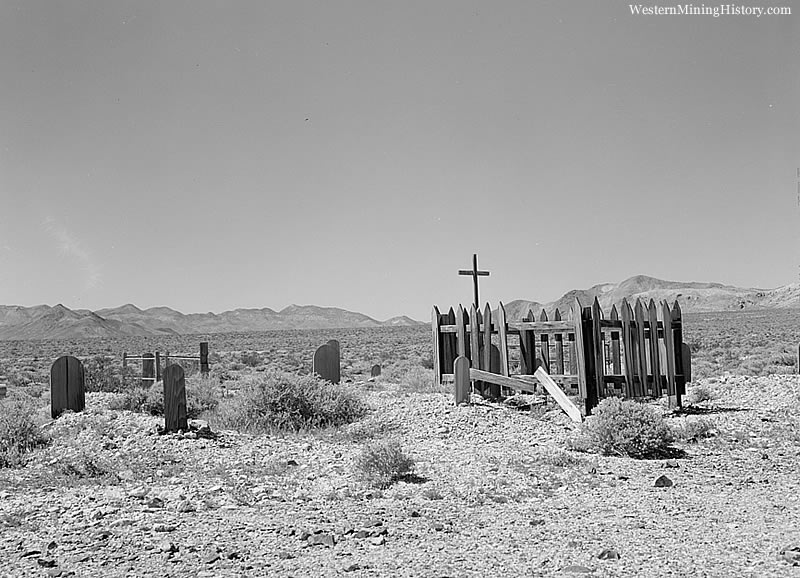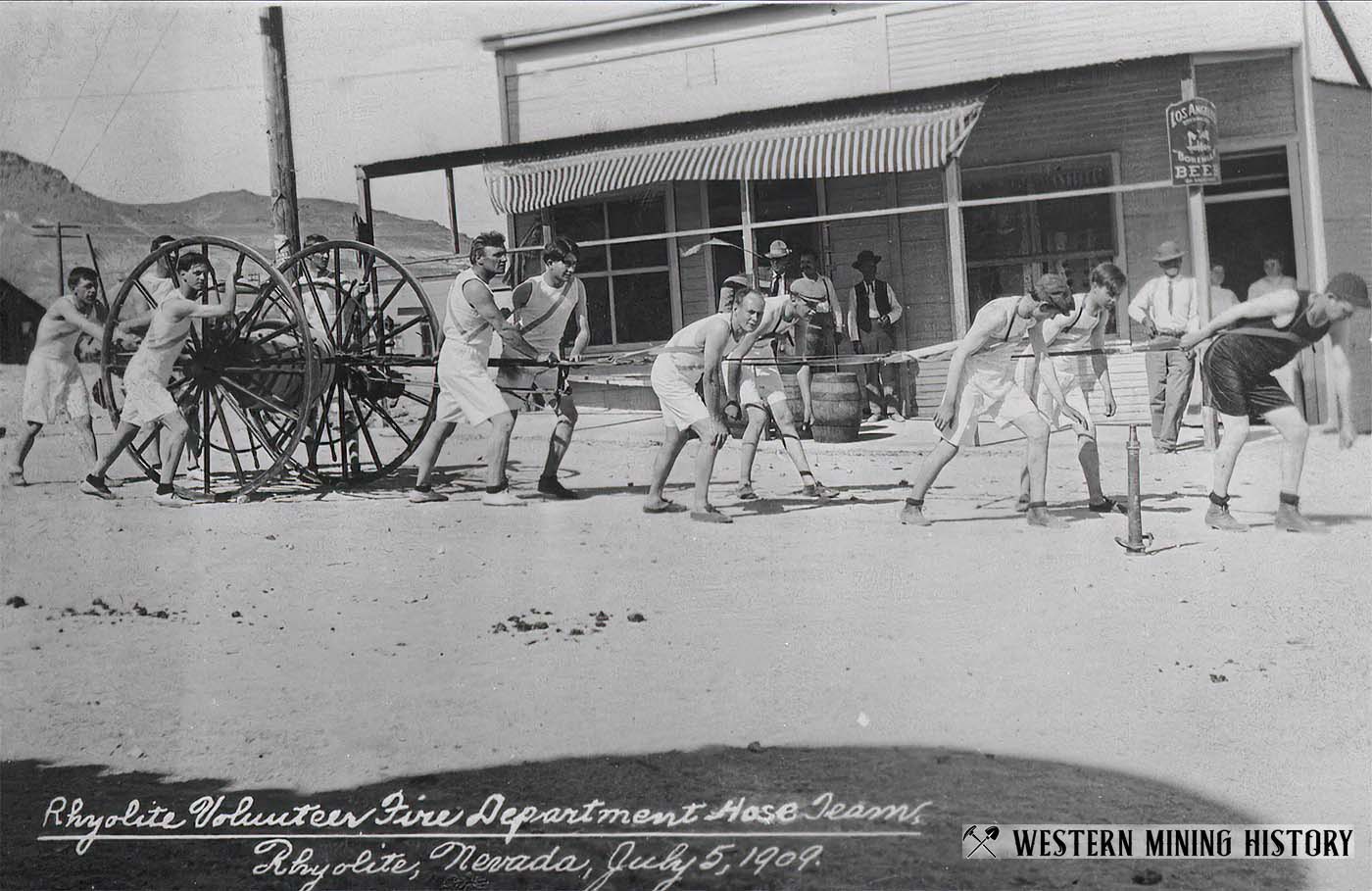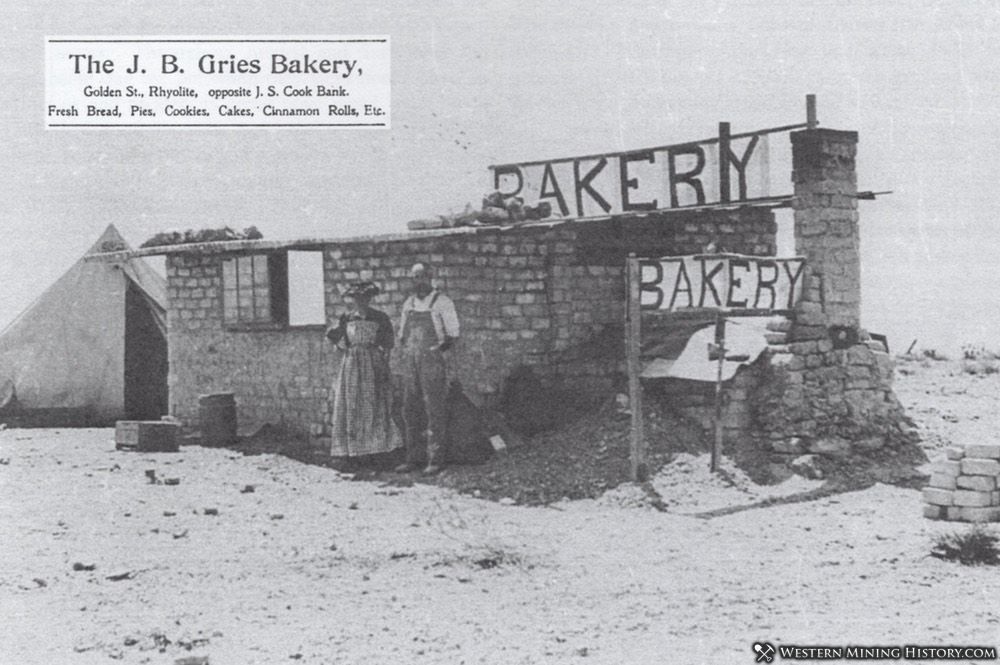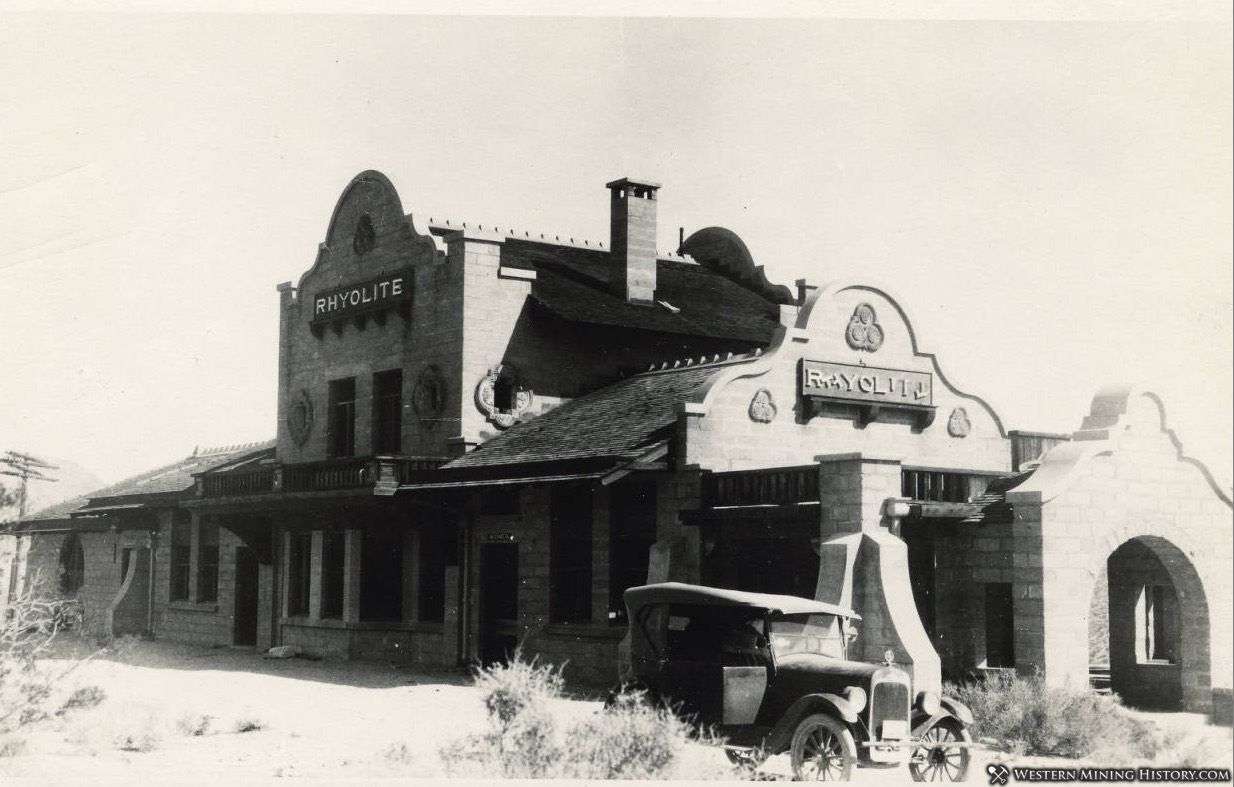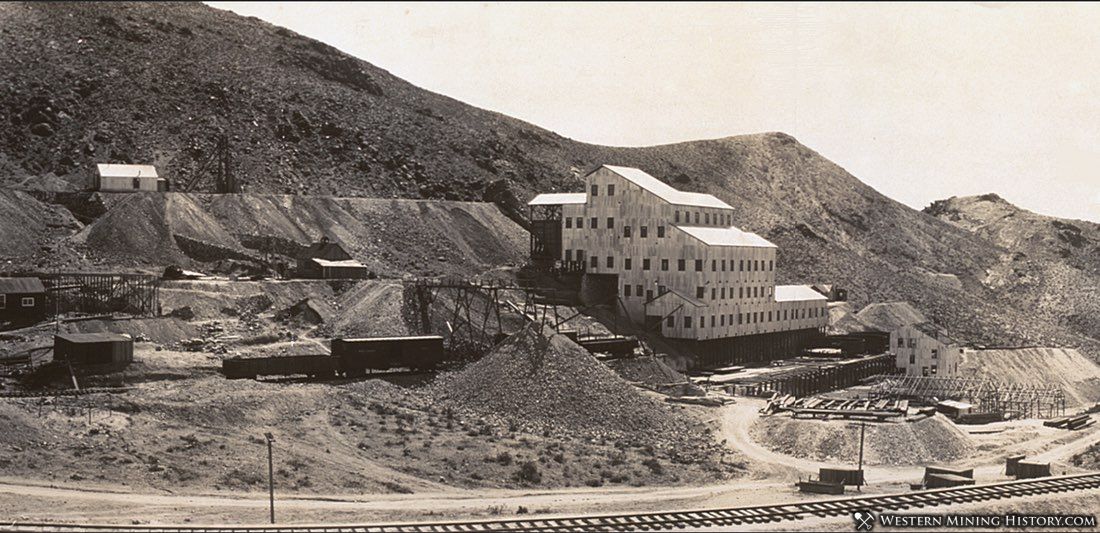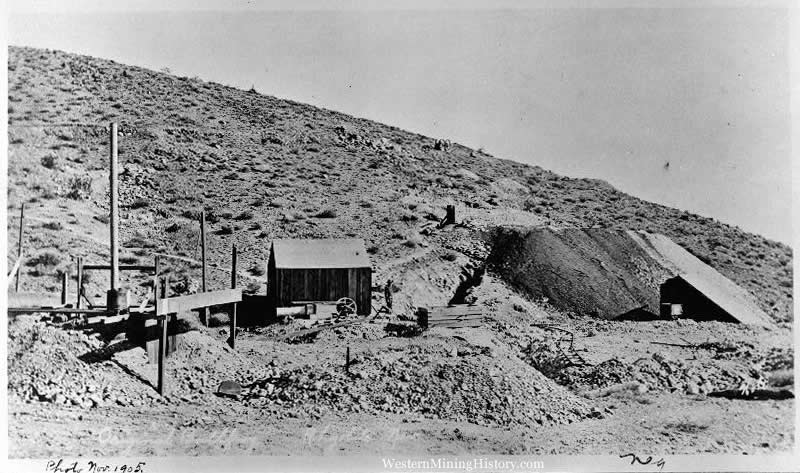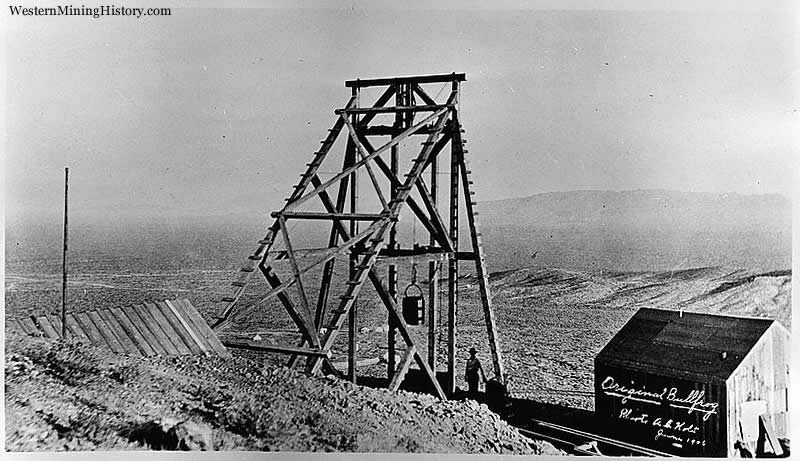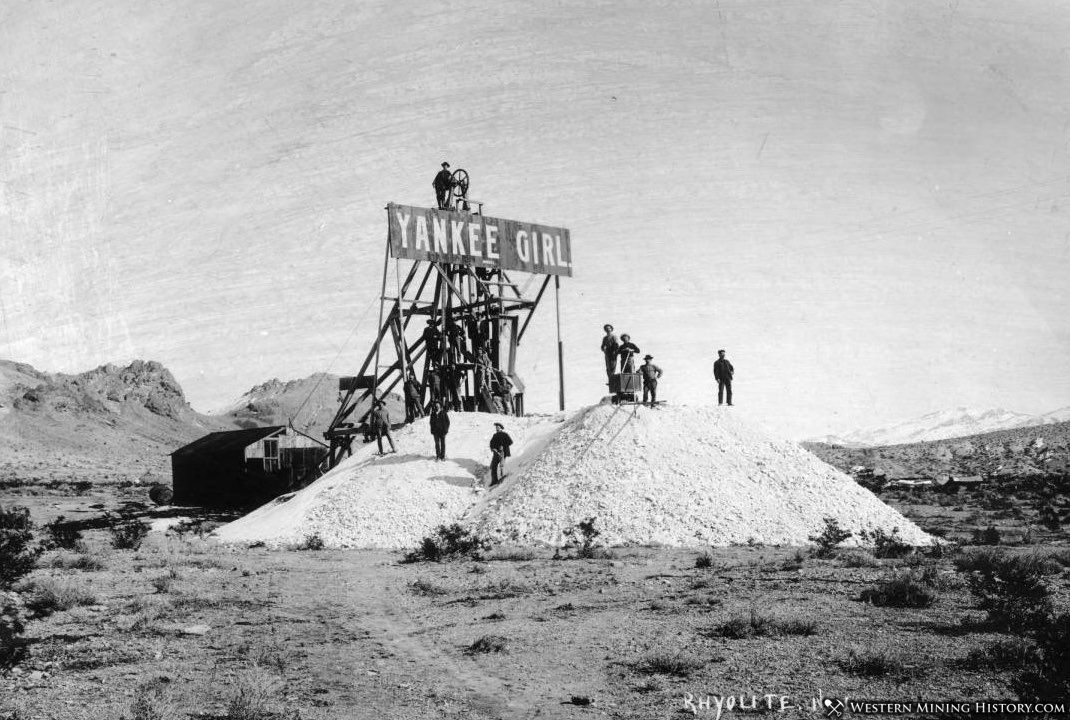Click on an image to get more details or a direct link.
Ruins of the John S. Cook and Company Building
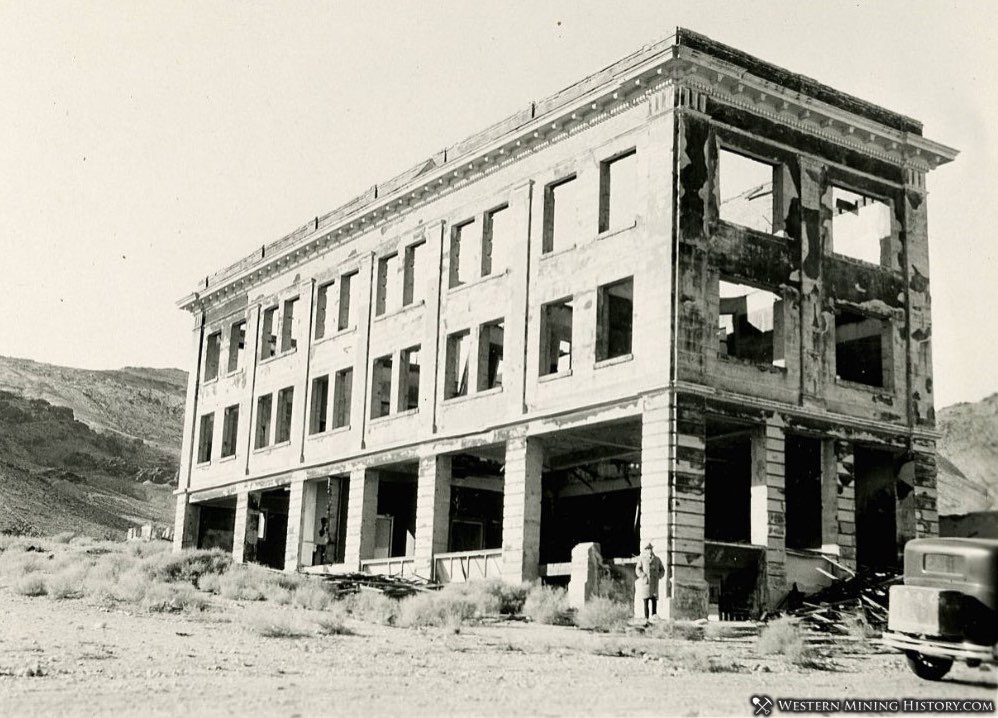
The John S. Cook and Company building was built in 1907 on Ramsey Corner, corner of Golden and Broadway Streets. It opened in 1908 and became known as the First National Bank of Rhyolite, Nevada.
Construction of Tom Kelly's Bottle House 1906
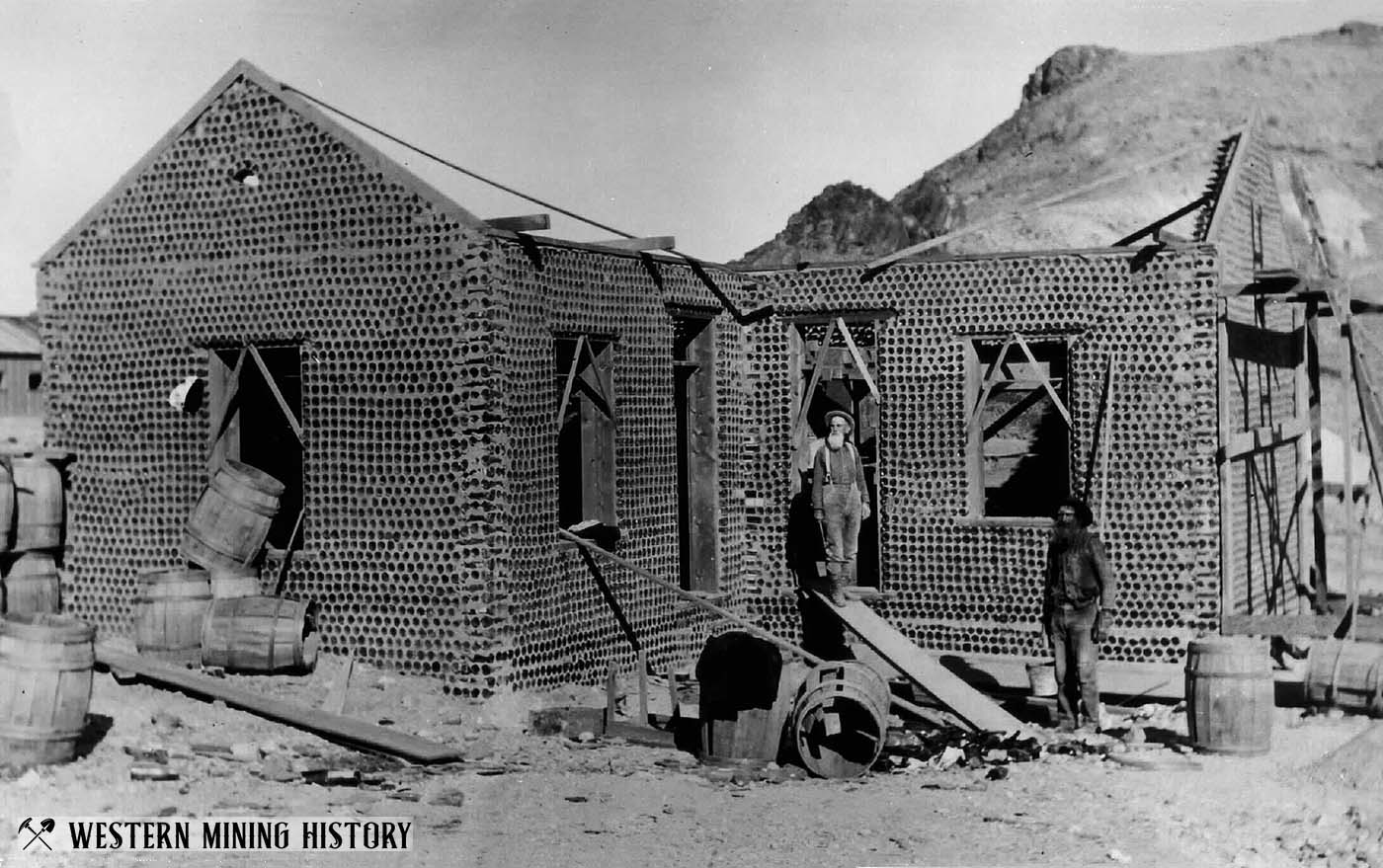
The Tom Kelly Bottle House is one of the few remaining examples of bottle house architecture in the United States.
In Nevada, where wood is scarce and expensive, miners often built their houses with whatever was cheap and readily available. In many cases, glass bottles fit the bill. The bottles would be used like bricks and mortared in with adobe. Bottle houses are great in hot climates because they are cool in the summer, hold heat in the winter, and allow for natural light. This bottle house was built in 1906 by Tom Kelly, an Australian-born stonemason turned gold miner, using over 50,000 bottles. Kelly paid local children 10 cents for a wheelbarrow full of bottles - about $3 in 2021.
The building cost about $2,500, with most of the money going for wood trim and fixtures.
Instead of living in the house, Kelly decided to auction it off. He sold 400 tickets at $5 apiece, losing about $500 on the deal. The raffle was won by the Bennett family who lived in the house from 1906 to 1914. In 1907, The Bennetts hired Dave Kinney, a ship-wright by trade, to build the porch roof and add the false chimney and gingerbread trim.
The bottle house's unique location and appearance made it a sought-after filming location. In 1924, Paramount Pictures used it in the film Wanderers in the Wasteland, based off a Zane Grey novel. Later that same year, the house was also used in the film The Air Mail. During that time, one of the film crews tore down the rear wall so filming could take place inside the building. After wrapping up, the production company rebuilt the wall and did basic stabilization and restoration work on the exterior.
Text from a historical marker
